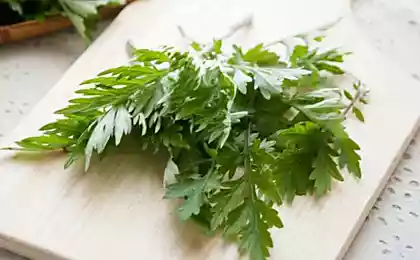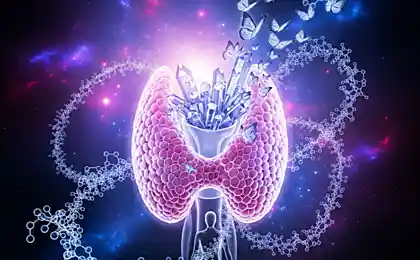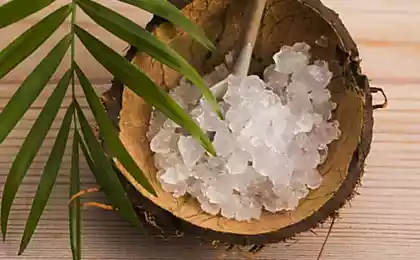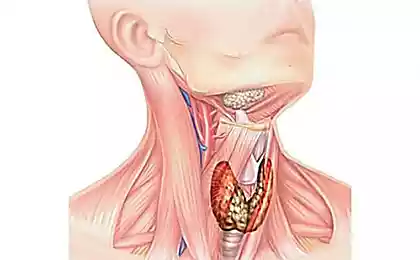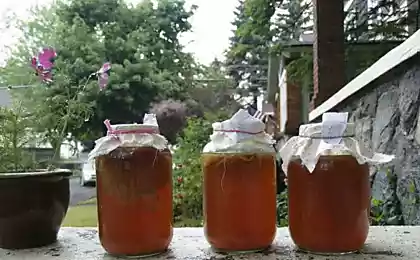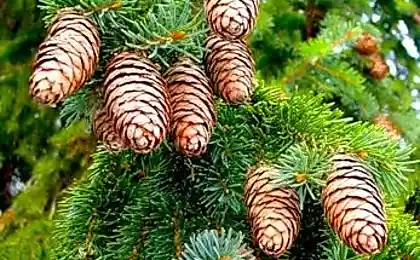508
Hypothyroidism: how to choose the right herbs
Hypothyroidism — a disease that more often affects women.
Hypothyroidism occurs when the thyroid gland stops working as active as she usually does, and ceases to produce hormones.The thyroid hormones are essential for normal metabolism and, as a consequence, good health.
Hypothyroidism often becomes a chronic disease, and patients are forced every day to take levothyroxine sodium tablets to restore the level of thyroxine (thyroid hormone) in the body. Medication along with proper nutrition can allow you to maintain a high level of life, almost the same as you had before chronic illness.
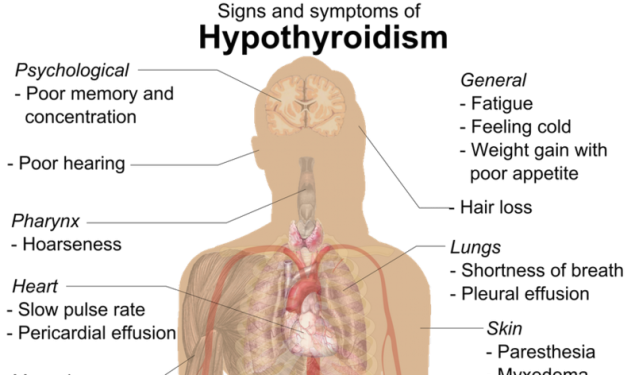
We, on the other hand, offer you a few tips on how to treat hypothyroidism natural herbs.
The symptoms of hypothyroidism:
Fatigue
— Weight gain
— Constipation
— Muscle pain
— Feeling cold
— Dry skin
— Hair loss
— Problems with menstruation
— Sleep problems
— Fluid retention in the body
— Tendency to depression.Herbs in hypothyroidism
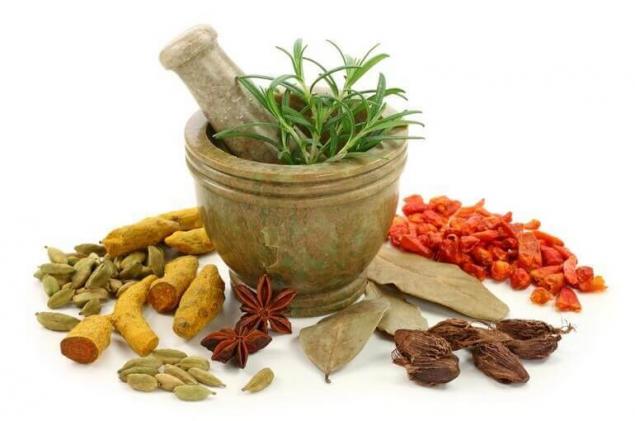
Gingerginger is a healing root, which stimulates the circulatory system, it is indispensable in order to maintain blood circulation. This is useful in hypothyroidism.
Ginger not only helps to overcome fatigue, but also eliminates the cold feel of typical hypothyroidism.
In addition, ginger improves digestion, like almost all other bitter plants.
You can prepare a tea from ginger root:
St. John's wortSt. John's Wort is an herb that is often used to treat the effects and symptoms of hypothyroidism. She is very good at helping with fatigue, depression, lethargy and lack of appetite, which leads to hypothyroidism.
St. John's wort is known as one of the best natural antidepressants in nature.
You can drink at the morning infusion of Hypericum, and can take it in pills (they are sold in pharmacies and stores of herbs) — a day to 0.5 milligrams per month.

Seaweedseaweed — fucus (aka sea grapes or sea oak), kelp, Irish moss, for example — is very useful for the thyroid gland. They are rich in iodine, indispensable for the treatment of hypothyroidism. Although most algae are eaten, they do not cease to be medicinal herbs.
However, it should be noted that algae are not always useful in hypothyroidism: sometimes they don't mix with medication prescribed by the doctor, and the body receives too much iodine. So talk to your doctor before adding algae to your diet.
DandelionHypothyroidism is often accompanied by constipation. To avoid these problems, it is necessary to establish the bowels. Dandelion — a great tool for this. Enough to drink an infusion of dandelion before each meal:
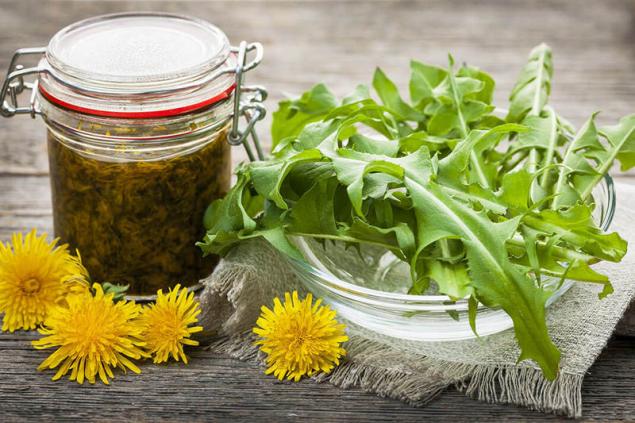
Tea made from Cayenne pepperTea Cayenne pepper promotes blood circulation, eliminates cold feeling, so common with hypothyroidism. In addition, it stimulates your whole body and makes it very carefully, even if you drink it late in the evening. To make tea:
P. S. And remember, only by changing their consumption — together we change the world! ©
Source: vk.com/event53269168?w=wall-53269168_108%2Fall
Hypothyroidism occurs when the thyroid gland stops working as active as she usually does, and ceases to produce hormones.The thyroid hormones are essential for normal metabolism and, as a consequence, good health.
Hypothyroidism often becomes a chronic disease, and patients are forced every day to take levothyroxine sodium tablets to restore the level of thyroxine (thyroid hormone) in the body. Medication along with proper nutrition can allow you to maintain a high level of life, almost the same as you had before chronic illness.

We, on the other hand, offer you a few tips on how to treat hypothyroidism natural herbs.
The symptoms of hypothyroidism:
Fatigue
— Weight gain
— Constipation
— Muscle pain
— Feeling cold
— Dry skin
— Hair loss
— Problems with menstruation
— Sleep problems
— Fluid retention in the body
— Tendency to depression.Herbs in hypothyroidism

Gingerginger is a healing root, which stimulates the circulatory system, it is indispensable in order to maintain blood circulation. This is useful in hypothyroidism.
Ginger not only helps to overcome fatigue, but also eliminates the cold feel of typical hypothyroidism.
In addition, ginger improves digestion, like almost all other bitter plants.
You can prepare a tea from ginger root:
- take a spoon of grated ginger and boil it in a glass of water,
- then leave the drink to infuse for a few minutes
- drink in small portions after a meal.
St. John's wortSt. John's Wort is an herb that is often used to treat the effects and symptoms of hypothyroidism. She is very good at helping with fatigue, depression, lethargy and lack of appetite, which leads to hypothyroidism.
St. John's wort is known as one of the best natural antidepressants in nature.
You can drink at the morning infusion of Hypericum, and can take it in pills (they are sold in pharmacies and stores of herbs) — a day to 0.5 milligrams per month.

Seaweedseaweed — fucus (aka sea grapes or sea oak), kelp, Irish moss, for example — is very useful for the thyroid gland. They are rich in iodine, indispensable for the treatment of hypothyroidism. Although most algae are eaten, they do not cease to be medicinal herbs.
However, it should be noted that algae are not always useful in hypothyroidism: sometimes they don't mix with medication prescribed by the doctor, and the body receives too much iodine. So talk to your doctor before adding algae to your diet.
DandelionHypothyroidism is often accompanied by constipation. To avoid these problems, it is necessary to establish the bowels. Dandelion — a great tool for this. Enough to drink an infusion of dandelion before each meal:
- three buds of the dandelion to put in a small saucepan with water and boil for five minutes
- leave the drink to infuse,
- drink in small portions.

Tea made from Cayenne pepperTea Cayenne pepper promotes blood circulation, eliminates cold feeling, so common with hypothyroidism. In addition, it stimulates your whole body and makes it very carefully, even if you drink it late in the evening. To make tea:
- take a quarter teaspoon ground Cayenne pepper and add it to boiling water,
- leave to infuse for a few minutes
- drink warm.
P. S. And remember, only by changing their consumption — together we change the world! ©
Source: vk.com/event53269168?w=wall-53269168_108%2Fall
How to correct the curvature of the spine
Julia Roberts: I won't do makeup, I don't want to wear someone else's face
